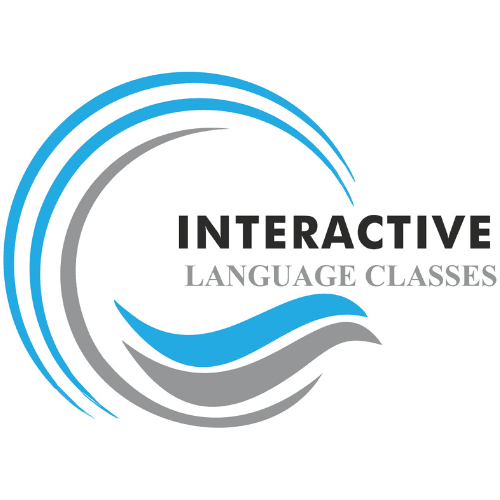No products in the cart.
by Abdul Mohaimen (Director, ILC)

Top 10 Mistakes Language Learners Make and How to Avoid Them
by Abdul Mohaimen (Director, ILC)
Learning a new language is an exciting and rewarding journey, but it’s not without its challenges. As a language learner, it’s natural to make mistakes, but there are certain pitfalls that can impede your progress. At Interactive Language Classes (ILC), we understand how vital it is to recognize and avoid these common mistakes early on. By doing so, you’ll improve your fluency and accelerate your language acquisition. In this blog, we’ll outline the top 10 mistakes language learners make and provide actionable tips to help you avoid them.

1. Relying Too Much on Translation
Mistake:
One of the most common errors learners make is translating everything from their native language into the target language. This might seem like an intuitive approach, but it often leads to unnatural sentence structures and incorrect grammar.
How to Avoid It:
Rather than translating word-for-word, focus on grasping the meaning behind phrases and sentences. Try thinking directly in the target language to develop a more natural understanding of its structure. Engage in real conversations where you can’t rely on translating.
Tip: Use bilingual dictionaries and language apps that emphasize context, and immerse yourself in daily conversations where translation isn’t an option.

2. Ignoring Pronunciation
Mistake:
Many learners neglect pronunciation in the early stages of language learning, prioritizing grammar and vocabulary instead. This can result in poor communication, even if your grammar is correct.
How to Avoid It:
From the very beginning, pay attention to pronunciation. Listen to native speakers and mimic their accent and intonation. Recording yourself and comparing it to native speakers’ pronunciations can help you improve.
Tip: Join language practice sessions with native speakers or use language apps that feature specific pronunciation exercises.

3. Not Practicing Speaking Enough
Mistake:
Many learners focus predominantly on reading and writing but avoid speaking. This lack of speaking practice limits their conversational skills.
How to Avoid It:
Make speaking practice a priority in your language learning. Speak to yourself in the language, engage in language exchanges, or join conversation clubs to enhance your communication skills.
Tip: Speak daily, even if it’s just talking about your day. Consistency is key.

4. Overlooking Grammar Fundamentals
Mistake:
Some learners rush through grammar or think they can learn it “later.” This often leads to confusion and inconsistent language use.
How to Avoid It:
While you don’t need to be a grammar expert, it’s important to have a solid understanding of basic grammar rules. Practice sentence structures, tenses, and word order regularly.
Tip: Use interactive language apps or grammar workbooks that teach grammar in context, rather than relying on rote memorization.

5. Fearing Mistakes
Mistake:
The fear of making mistakes can paralyze many learners and prevent them from speaking the language.
How to Avoid It:
Mistakes are an essential part of the learning process. Embrace them, as they are stepping stones toward fluency. Native speakers are often appreciative of learners’ efforts.
Tip: Surround yourself with a supportive community that encourages trial and error. At Interactive Language Classes, we foster a safe and judgment-free learning environment.

6. Not Using the Language Enough in Real-Life Situations
Mistake:
Studying grammar and vocabulary in isolation, without applying them in real-world situations, often leads to poor retention of the language.
How to Avoid It:
To enhance retention, immerse yourself in the language by watching movies, listening to music, or having conversations with native speakers. Even small daily interactions can help solidify what you’ve learned.
Tip: Change the language settings on your phone or social media to the language you’re learning to increase exposure.

7. Not Setting Clear Goals
Mistake:
Many learners dive into language learning without setting specific, measurable goals, leading to a lack of direction and motivation.
How to Avoid It:
Set clear, achievable goals such as learning a set number of words per week or holding a 5-minute conversation in the language. Breaking long-term goals into smaller, more manageable objectives will keep you on track.
Tip: Use language learning platforms that allow you to set and track goals, or create your own schedule with clear milestones.

8. Underestimating the Importance of Listening
Mistake:
Listening skills often take a backseat to speaking and reading practice. However, without developing listening comprehension, you’ll struggle to understand native speakers.
How to Avoid It:
Expose yourself to a variety of listening materials, such as podcasts, movies, and YouTube videos. Try listening to different accents and dialects to improve overall comprehension.
Tip: Use language apps that offer listening exercises, transcriptions, and comprehension tests.

9. Relying Too Much on Apps and Technology
Mistake:
While apps and technology are helpful tools, over-reliance on them can limit your exposure to authentic language use.
How to Avoid It:
Balance digital learning with real-life interactions. While apps can help with vocabulary and grammar, speaking with real people and experiencing the language in natural settings is irreplaceable.
Tip: Attend language immersion events, workshops, or engage in in-person language exchanges to get more practical experience.

10. Giving Up Too Soon
Mistake:
Many learners give up when they don’t see immediate progress. Learning a language takes time, and it’s easy to lose motivation when results don’t come quickly.
How to Avoid It:
Be patient and persistent. Celebrate small victories, whether it’s understanding a movie without subtitles or having a short conversation in the language.
Tip: Find a language partner or group to keep you motivated and set realistic expectations about your learning timeline.
Conclusion
At Interactive Language Classes, we understand that learning a language is a journey filled with challenges. By avoiding these common mistakes and implementing the strategies discussed, you can enhance your learning experience and accelerate your progress. Remember, mistakes are a natural part of the process, and with dedication and consistent practice, fluency is within your reach.
Are you ready to take your language skills to the next level? Join us at Interactive Language Classes, where we offer personalized lessons, immersive experiences, and real conversations. Let’s embark on this exciting journey together!
Useful Links for Further Learning:
- How to Learn a New Language Faster
- Arabic Language Course
- Spanish Language Course: Embrace the Global Language
- French Language Course
- Master French with ILC
- Uzbek Language Course











